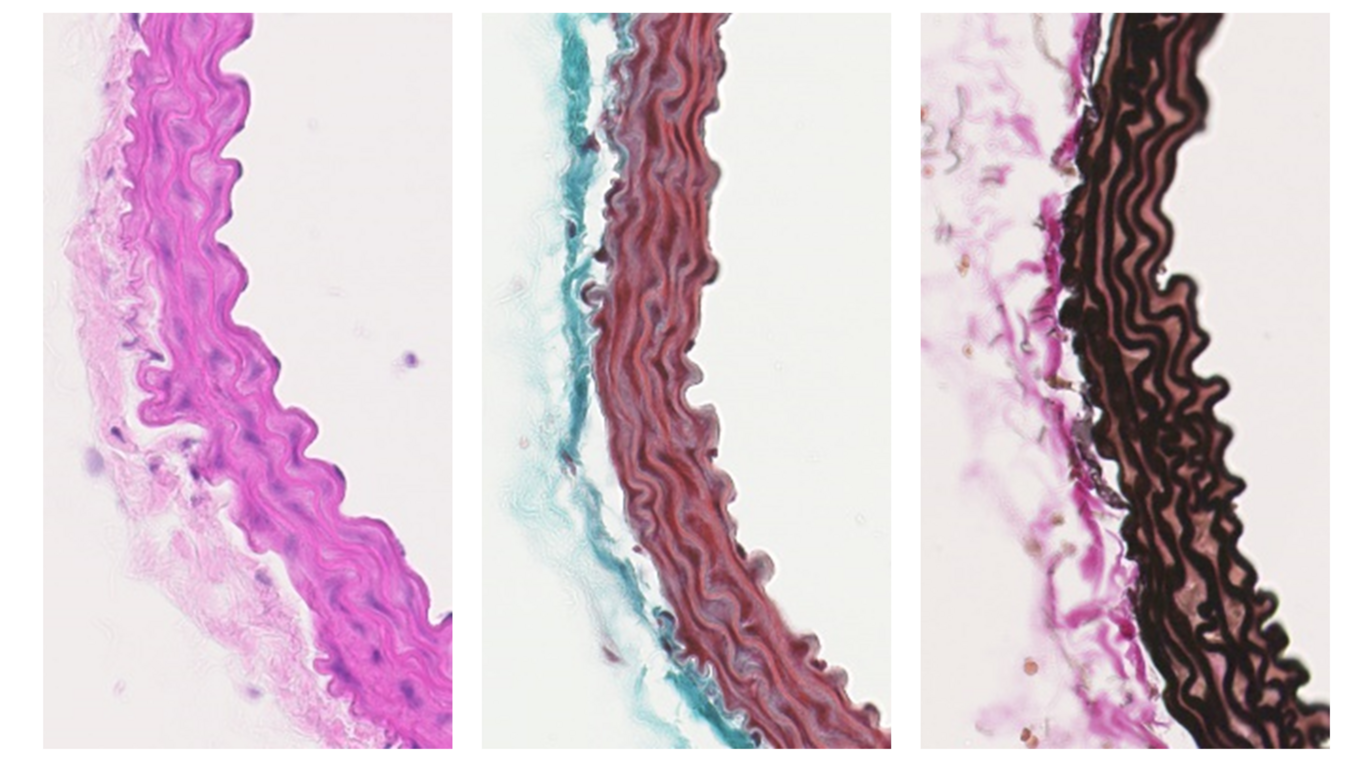Endothelial cells do not cause cardiovascular alterations and premature death in progeria syndrome
A new study of endothelia cells published in the journal Aging Cell with contributions from AIAS fellow Magda R. Hamczyk sheds light on a fast-progressing aging disorder, the Hutchinson-Gilford progeria syndrome, or simply progeria.


The Hutchinson-Gilford progeria syndrome, or simply entitled progeria, is a fast-progressing aging disorder caused by a mutant protein called progerin. Previous scientific works using in vitro and in vivo progeria models have shown multiple alterations in endothelial cells, which are important components of the blood vessels.
In a new study published in the journal Aging Cell, AIAS-AUFF Fellow Magda R. Hamczyk and colleagues have generated genetically engineered mouse models that produce progerin only in endothelial cells.
Magda R. Hamczyk together with researchers from two Spanish research groups lead by Vicente Andrés and Ignacio Benedicto found that these mice did not show premature aging symptoms nor cardiac abnormalities observed in progeria patients and mouse models that express progerin in the entire body. Moreover, analyses on atherosclerosis, a life-threatening medical problem in progeria patients, revealed no differences between control mice and mice that expressed progerin in endothelial cells.
Vascular smooth muscle cells
These new data, together with previous results of the researchers, indicate that progerin expression in endothelial cells is not sufficient to cause the previously observed defects, which are rather caused by alterations in progerin-expressing vascular smooth muscle cells. Yet further scientific studies are needed to disentangle the complex endothelial-smooth muscle cell communication process.
Understanding cellular mechanisms
Importantly, the new study aids in assessing how different cell types contribute to the progeria syndrome, which is crucial for developing targeted therapies. Moreover, understanding cellular mechanisms that are leading to premature aging and atherosclerosis might help to tackle these issues in the general population.
Access the full scientific article here
'Endothelial cell-specific progerin expression does not cause cardiovascular alterations and premature death' by Ignacio Benedicto et al in: Aging Cell, 31 October 2024:
https://doi.org/10.1111/acel.14389
Contact
Magda R. Hamczyk, AIAS-AUFF Fellow
E-mail: mhamczyk@aias.au.dk
Aarhus Institute of Advanced Studies, AIAS
Høegh-Guldbergs Gade 6B
DK-8000 Aarhus C
Denmark
